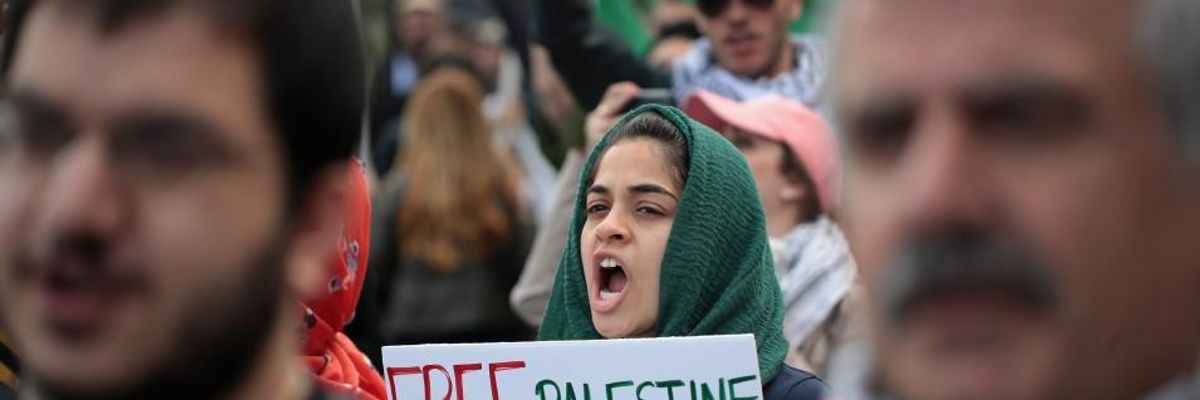Last week United States Ambassador David M. Friedman broke with decades of US policy by announcing that Israel has the right to annex some but "unlikely all" of the Occupied West Bank. Ambassador Friedman has long been a staunch supporter of the settlement movement, providing extensive financial support to West Bank settlements and declaring last May that settlements do not violate international law.
The Trump administration did not refute or walk back Friedman's remarks, which came on the heels of Prime Minister Netanyahu's recent campaign promise to annex parts of the West Bank. Prime Minister Netanyahu won the recent election but failed to form a government with far-right parties, forcing new Israeli elections in September. This time around, though, the far-right will demand more than vague promises of annexation in exchange for their support. With extremists in both the Trump administration and the Israeli far-right pushing for annexation, there is a high probability that Israel will soon begin annexing broad swaths of the Occupied West Bank.
If Israel were to annex Area C which takes up about 60 per cent of the West Bank and is currently under full Israeli control, the Palestinians would be left with a series of non-contiguous islands of land. Transforming those tiny islands into a stable, sovereign state would be a superhuman task. However Israel and the US never really planned on giving the Palestinians a sovereign state anyway. The Likud party, which currently holds power in Israel, is staunchly opposed to a Palestinian state anywhere between the Jordan River and the Mediterranean Sea and Trump advisor Jared Kushner, who has been placed in charge of formulating a Middle East peace plan, recently expressed doubt that Palestinians are capable of governing themselves. Therefore under the most likely scenario Israel will continue to control Palestinian borders, airspace, aquifers, electromagnetic spectrum, and maritime zones, while Palestinians are granted autonomy within a series of tiny enclaves scattered throughout the West Bank and Gaza.
For over half a century the Palestinians have been held under occupation and denied the right of self-determination, a right the United Nations was supposed to guarantee to all peoples.
This particular political arrangement should sound disturbingly familiar. Indeed it should immediately bring to mind the Bantustans, which were the cornerstone of South Africa's Grand Apartheid. In South Africa the Land Acts of 1913 and 1936 created reserves to separate the indigenous black population from white settlers. The Bantu Homelands Citizenship Act (1970) then made blacks citizens of their Bantustans, denying them citizenship in South Africa and permanently excluding black South Africans from any claim to equality and political rights in white South Africa. To deny blacks first class citizenship, they were made the citizens of a second class state.
Like the Bantu homelands, the Palestinian homeland would be granted self-governance over a limited number of civil matters such as education and law enforcement, but not over broader issues of international trade and immigration. Like the Bantu homelands, which had no authority over South African police and military which could enter at any time, the Palestinian homeland will be charged with maintaining public order while Israel retains security control over the West Bank, allowing IDF troops to come and go as they please. Like the Bantu homelands, the Palestinian homeland will be granted all the trappings of statehood while its "citizens" are denied equality and political rights in the state that actually holds sovereignty over them.
Given the current political environment, the annexation of occupied Palestinian land is pretty much inevitable. The Trump administration has set the stage for annexation by first recognizing Israeli sovereignty over the occupied Golan Heights and then, after finding the international response subdued, by recognizing Israeli sovereignty over much of the West Bank. European governments are expected to briefly object to the annexation of occupied land as a blatant violation of international law, but to then quietly and uncomfortably look the other way.
The only way to avoid bringing the barbarism of apartheid into the 21st century is therefore by firmly shifting away from the two-state solution and instead linking Israel's inevitable annexation of the Occupied West Bank to Israeli citizenship for occupied Palestinians. If Israel annexes Palestinian land and closes the door on a sovereign Palestinian state, then the international community must demand that Israel extend citizenship to occupied Palestinians. If Israel refuses to grant the Palestinians their own sovereign state then the international community must demand that Palestinians be granted citizenship in the state that holds sovereignty over them.
Self-determination can be defined as the right of a people to have a voice in the government that rules over them. For over half a century the Palestinians have been held under occupation and denied the right of self-determination, a right the United Nations was supposed to guarantee to all peoples. The only way to avoid having the tragedy of a 50 year occupation culminate in a barbaric Apartheid regime is by extending Israeli citizenship to all occupied Palestinians. Not just to the Palestinians who have steadfastly remained in their homes and villages in Israeli-controlled Area C, but also to the millions of Palestinians trapped inside enclaves scattered throughout Area C and Gaza. Over the past two year the Trump administration has unilaterally taken important issues such as Jerusalem and the Right of Return "off the table." Because of this the remaining options are now undeniably clear: Equality or Apartheid.




